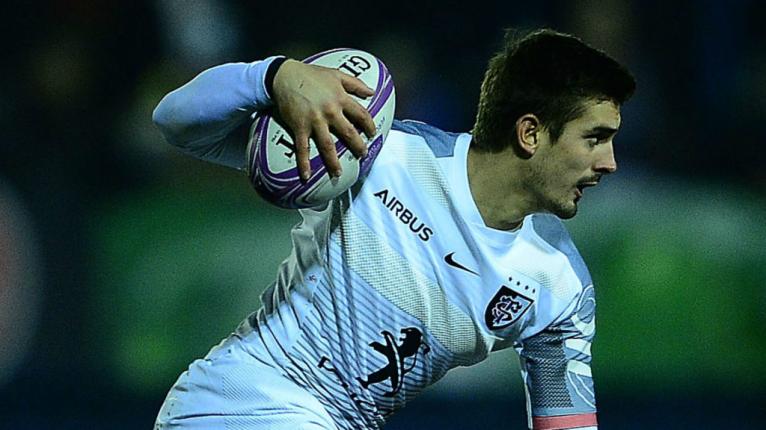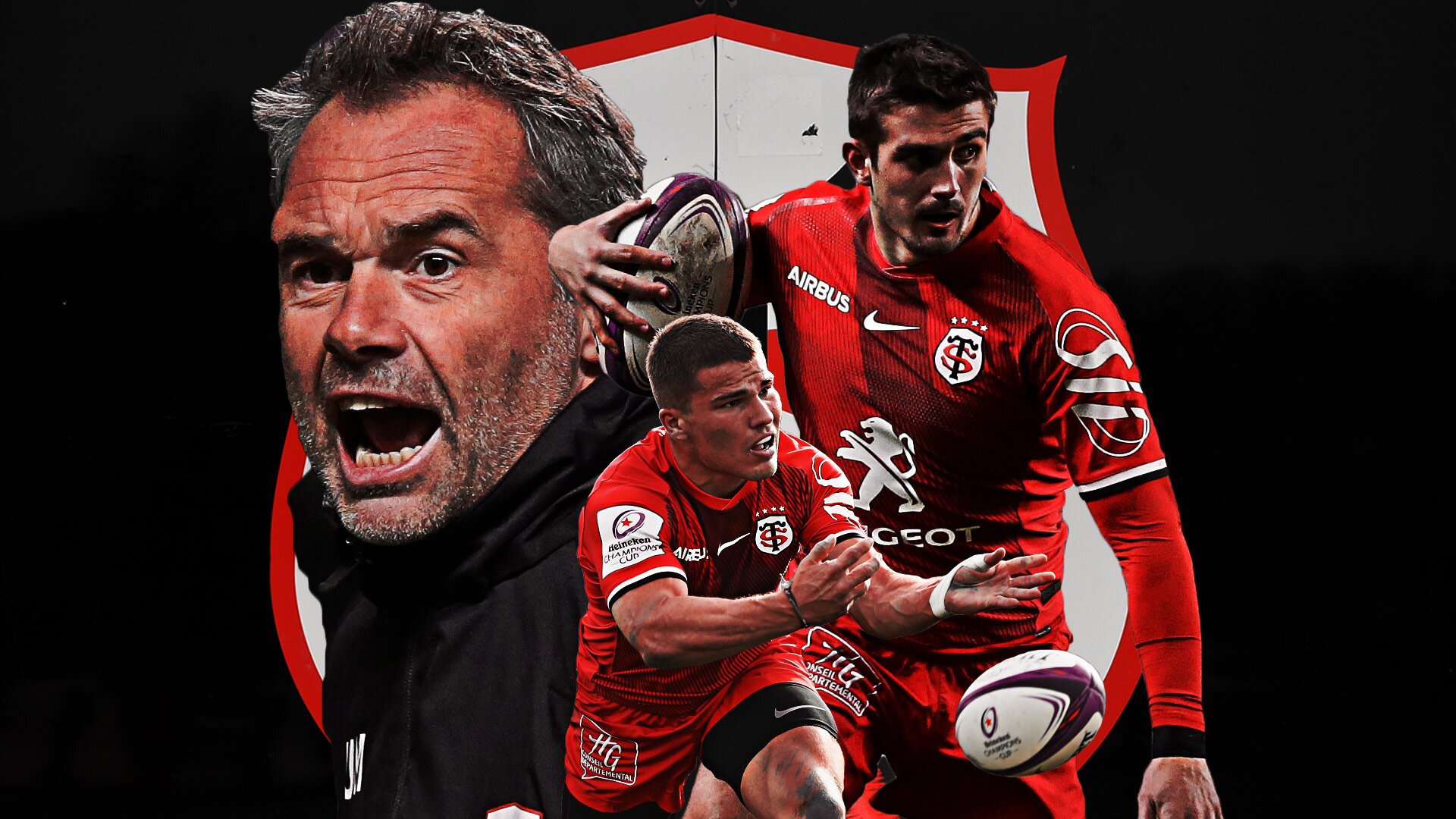Acid test looms for reborn Toulouse in Dublin

For rugby fans of a certain age, the rapid rejuvenation of Toulouse over the last four or five months has been one of the most enjoyable stories of the 2018/19 season.
For anyone who grew up in the 90’s, Toulouse were the standard by which all other European rugby clubs were measured. It was the foundations that were laid in that decade – as well as their inaugural European title in 1996 – that allowed for a chateau of Gallic flair, knockout rugby excellence and a playing squad of eye-watering quality to be built.
The French side were the toast of European rugby, lifting Heineken Cups in 2003, 2005 and 2010, as well as making it to finals in 2004 and 2008. Their total of four titles was the standard in the competition until Leinster equalled it by lifting the trophy last season, whilst their six final appearances in total remains the highest in the competition’s history.
A mark of their continued excellence in the competition was that in a 20-year stretch in Europe’s top tier club competition, ranging from 1995 to 2015, Toulouse only once lost more games than they won in a European season, when a draw with Ulster cost them in the 2000/01 season, leaving them with a record of won two, drawn one and lost three.
Unfortunately for the aristocrats of European rugby, they have not fared quite so well since that stretch ended in 2015.
Continue reading below…
Watch: Premiership Rugby to formally investigate leaked minutes.
The 2015/16 season of the European Rugby Champions Cup brought plenty of pain for Les rouge et noir, as they fell to five losses in the pool stage, with their sole victory coming at home to Oyonnax. They did end up finishing fifth in the Top 14, however, ensuring that they would be back in the next season to have a better crack at regaining their European mantle.
In 2016/17, the club snuck through the pool stages, grabbing a best runner-up spot in a pool that boasted an outclassed Zebre side and Connacht, who were dealing with a fair amount of second season syndrome, after having lifted the Guinness PRO12 title the campaign before. The dream ended there, though, as they met a fired-up Munster side in the quarter-finals at Thomond Park, where they were handily beaten, 41-16, by the Irish province. Worse was yet to come, however.
Toulouse ended the 2016/17 season 12th in the Top 14, just one spot above the relegation zone. The 15-point gap to 13th was a strong indicator of the difference in quality between Toulouse and the relegated pair of Grenoble and Bayonne, but that didn’t make it any more appetising for their fans to digest. The 2017/18 season was to be the first campaign that Toulouse spent outside of Europe’s top tier competition since the tournament began in 1995.
There were a number of reasons for Toulouse’s downfall, but chief among them was a recruitment and retention policy that overpaid for declining skill sets and created a wave of similar salary expectations throughout the team. The club ended up with a highly-paid squad of ageing players that was getting worse by the season – through no fault of the players, simply the effects of age – and without the financial flexibility to bolster the side in the right areas, or the opportunities for younger players to come through their once-famed academy and stake a claim for a place in the XV.
It created quite the hole for the club, but since the arrival of Fabien Pelous as director of rugby and Ugo Mola as head coach in 2015, the pair have been doing an admirable job of turning around the fortunes of the 19-time French champions.

A third-place finish in the Top 14 last season brought Toulouse back into European rugby’s premier competition this season, and they have taken the opportunity gratefully, winning all four of their pool games so far, a record which is only matched by Saracens and Racing 92. Equally, their Top 14 form has been excellent, with the club sitting in second, just three points behind league leaders Clermont.
The acid test of Toulouse’s rebirth comes this weekend, however, as they travel to Dublin to take on reigning champions Leinster at the RDS.
They had Leinster’s number at the Ernest Wallon earlier this season, beating the province 28-27 in front of nearly 18,000 spectators, in what was a nostalgic reminder of European rugby’s days of yesteryear. They also held serve at home against Wasps, registering a comfortable 42-27 victory over another side that is interwoven into Toulouse’s history in the competition.
Away wins over Bath and Wasps have also helped to dispel the outdated notion of French sides generally being poor on the road, and momentum is fully with Mola’s team. Their recent domestic results have also been impressive, with a 27-20 win away at Agen, a 39-0 thumping of Toulon and a 20-20 draw away at Clermont their three most recent fixtures. Given the strength with which French sides defend their home soil, those two points picked up at Clermont may be the most impressive result of the bunch, as they are unlikely to face a more challenging task than Clermont away in domestic rugby again this season.
Toulouse’s rejuvenation has centred around a homegrown core coming to the fore at the club. It’s exactly the same process that preceded great European success for the likes of Leicester Tigers, Wasps, Munster, Leinster and Saracens in the competition, as well as Toulouse themselves. The only club to really break this trend and enjoy consistent success in the competition without that core has been Toulon, and their method will be hard to replicate.
Toulon prospered with a team of experienced, global stars, something they were able to put together before wage expectations rose to where they currently are across the board, as well as not facing the recent changes to the JIFF regulations that French clubs are now expected to abide by. It was a fantastic team that was a joy to watch, but it was also a team that made the most of shifting eras in professional European rugby and took advantage of that better than any of their rivals.
If you take the formulae of the other six clubs to win multiple European titles at this level, then Toulouse are well on their way to re-establishing themselves as a dominant force.
The trio of Romain Ntamack, Thomas Ramos and Julien Marchand have developed into integral members of the squad, with Ramos having just broken the 90 mark on the RPI and Ntamack’s score of 87 making him comfortably the top teenager on the Index.

Whether at 12 or 10, Ntamack gets the back line singing, Ramos brings counter-attacking and solid basics to the 15 or the 10 jersey, and Marchand has thrived in his role as captain and is giving Guilhem Guirado a run for his money as the most consistent hooker in the Top 14. With Ramos and Marchand aged 23 and Ntamack still only 19, Toulouse have found a core to grow their club around, much as Saracens did a while ago with Owen Farrell, Maro Itoje and Jamie George, among others.
There are other significant contributors whose age profiles would suggest there is still room for improvement, such as Cyril Baille, who has been unlucky with injury, Florian Verhaeghe, Selevasio Tolofua and Arthur Bonneval. They are all players who want to represent Toulouse, know the special nature of the club and are well-suited to the style of rugby that the club is trying to play once again.
Recruitment has also improved, with no signing as impressive as that of Antoine Dupont, with the 22-year-old arguably already the pick of a healthy crop of French scrum-halves, although an RPI score of 88 actually has him just behind Teddy Iribaren in the Top 14. Jerome Kaino has brought improved solidity to the spine of the side, alongside the likes of Marchand, Ntamack and Ramos, and Cheslin Kolbe has been a game-winner, who has only added impetus to the club’s move back to the knife from the hammer. Joe Tekori is playing well, Sofiane Guitoune is as dangerous a 13 in Europe as there is at the moment and Charlie Faumuina provides reliability at tighthead.
Experience has been retained, too, to give the squad balance, in the forms of Maxime Médard, who is the top full-back in the Top 14 on the RPI, Yoann Huget and Maxime Mermoz. These are players that remember the glory days at Toulouse and are fine role models to help turn the likes of Marchand, Ntamack and Ramos into the tone-setters and leadership group at the club for the years to come.
All of that said, the challenge that Leinster pose on Saturday may well prove to be too demanding. Toulouse are on the up, certainly, but Leinster are already at the top.
This is not a game where a loss should, necessarily, end the excitement about where the French side are heading, as Leinster provide the perfect barometer for Toulouse to measure where they are in their development. If they can go to Dublin on Saturday afternoon and live, or at least be competitive with the guile of Johnny Sexton, the physicality that Tadhg Furlong will bring and the tempo and intensity of Leinster’s dangerous outside backs, then they should be encouraged regardless of the result, rather than disheartened.
Mola and Pelous need to take Toulouse into the encounter targeting a victory – and that is certainly a possibility – but there is more to be learnt about their side in this contest than the result alone will show.
The RDS may well be the toughest destination in European rugby and now the pair get a front row seat to see just how far the evolution of their side has come and what they will need to do over the coming months and years for the former giants of French rugby to take their place back among Europe’s elite.
Watch: Rugby World Cup city guide: Oita



































































